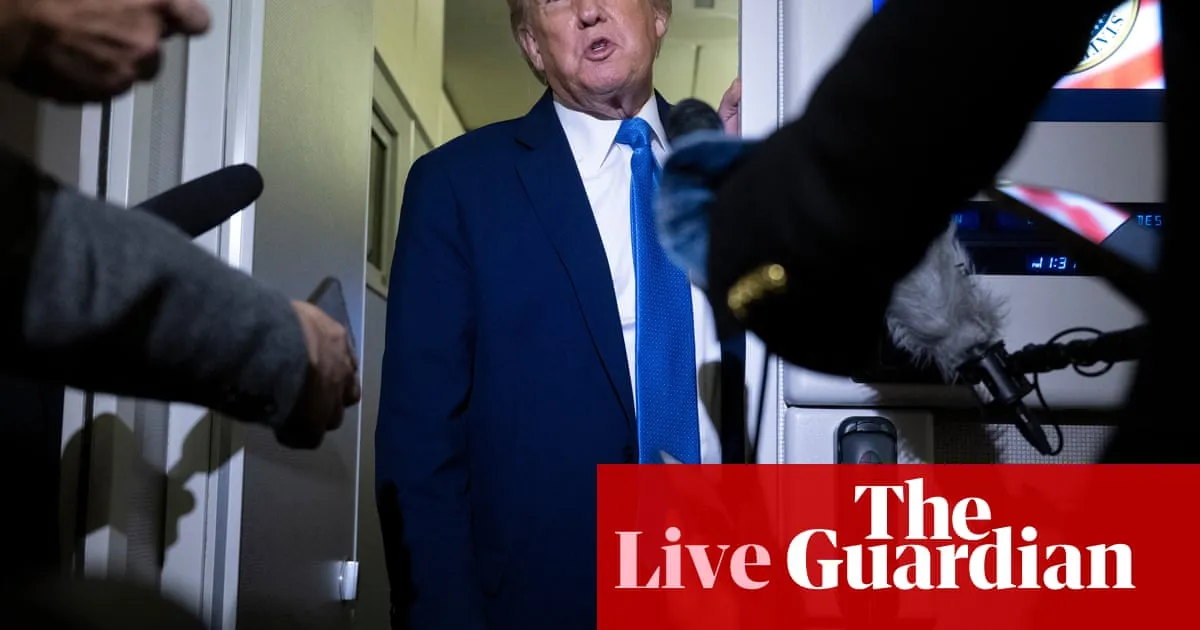
In a controversial statement made aboard Air Force One, Donald Trump expressed his refusal to reach out to Minnesota Governor Tim Walz following a tragic incident that resulted in the death of a state lawmaker and injuries to another individual. The incident, described as a “politically motivated assassination,” has left the state and its leaders grappling with the aftermath.
Trump's remarks came over 48 hours after the shooting, which claimed the life of Melissa Hortman, a prominent state lawmaker, and injured others. When questioned by reporters about contacting Walz, who notably served as Kamala Harris's running mate in the last presidential election, Trump dismissed the idea, labeling the governor as “whacked out” and “a mess.” He stated, “Why would I call him? I could call and say, ‘Hi, how you doing?’ The guy doesn’t have a clue.” This refusal to communicate has raised eyebrows, as reaching out to state leaders in times of tragedy is often seen as a presidential duty.
As Trump navigates the complexities of international relations, particularly regarding the Iran-Israel conflict, he faces internal divisions among his supporters. Some advocate for immediate US military action against Iran, while others, including key figures like JD Vance, urge restraint and adherence to Trump's campaign promise of avoiding new overseas wars. The debate centers around significant military strategies, including potential strikes on Iran's Fordow nuclear facility, which is crucial for uranium enrichment.
The Pentagon has publicly stated that there are no disagreements within its ranks regarding policy, despite visible fractures among Trump’s supporters. This internal conflict reflects the broader tension in Washington, as Trump contemplates his strategy amidst escalating violence and the looming threat of a military confrontation.
In political developments apart from Trump, Bernie Sanders has endorsed Zohran Mamdani in the race for the New York City mayoral primary. Mamdani, a democratic socialist, is positioned as a strong contender against former governor Andrew Cuomo, who is attempting a political comeback after leaving office amid controversy.
Sanders emphasized the need for “new leadership” to challenge corporate interests and advocate for the working class. Mamdani responded on social media, stating that Sanders has been a significant influence in his political journey and pledging to fight for the working class as mayor.
In remarks regarding trade, Trump hinted at a potential extension of a deadline for the Chinese company ByteDance to divest its US assets concerning the popular social media app TikTok. He indicated that negotiations would likely require approval from Chinese President Xi Jinping, expressing optimism about reaching an agreement. This move comes as Trump acknowledges the app's influence in garnering support from younger voters for the upcoming 2024 election.
On another front, Trump’s administration is grappling with the legality of deploying troops within the United States, specifically in Los Angeles. A federal appeals court is set to hear arguments related to this issue, which has stirred national debates on the military's role in domestic affairs.
As the political landscape continues to evolve, Trump's refusal to engage with Governor Tim Walz highlights a departure from traditional presidential norms. Simultaneously, the internal divisions within his administration regarding foreign policy and trade negotiations emphasize the complexities of governance in a polarized environment. With upcoming elections and ongoing international crises, the coming weeks will be crucial for Trump and his administration as they navigate these challenges.